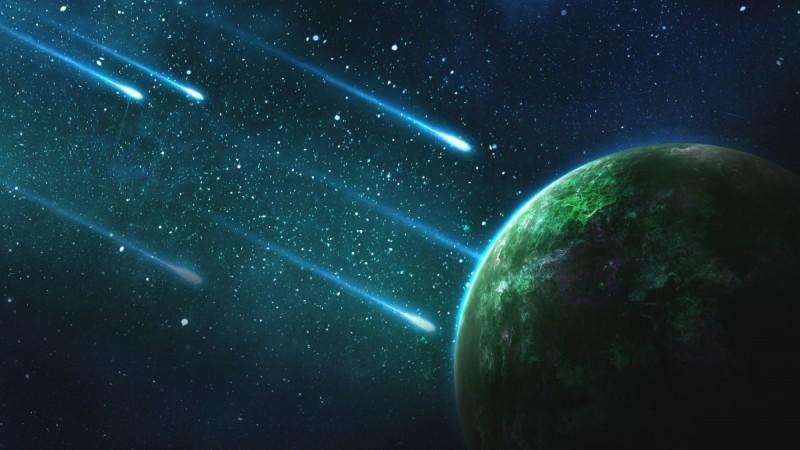Space is full of mysterious objects and sometimes humans get a close encounter with them. Asteroids flying pass planets and moons are not rare in the space, but some of those encounters can really make us stop and ask "should we be worried?" In one such instance, NASA has confirmed that a massive asteroid will skim past Earth this week.
Asteroid 2016 NF23, which is bigger than the Great Pyramid of Giza or two times the size of a Boeing 747, is headed towards Earth for a close encounter on August 29. The massive space rock is blazing at more than 20,000 miles per hour (32,400 km/h) and it is considered "potentially hazardous" due to its proximity.
Asteroids are considered potentially hazardous when they reach a minimum distance less than 0.5 astronomical units (au) from Earth and have an absolute magnitude (H) of 22 or brighter, Daily Mail reported. Asteroid 2016 NF23 has an absolute magnitude of 22.9 and it will be about 0.3 au away at its closest point.
Should you be worried?

Experts haven't sounded the alarm bell for this approaching asteroid. According to NASA's Jet Propulsion Lab diagram, the massive asteroid will safely pass by Earth without posing any threat. Even at its closest point, which is 0.3 au, the asteroid – measuring about 230 to 525 feet wide (70-160 kilometres) – will be over 3 million miles or about 4.8 million kilometres away.
The distance between Asteroid 2016 NF23 at its closest encounter point with Earth is equivalent to 13 times the distance between Earth and the moon. So no, there's no reason to panic or be frightened concerning the massive asteroid crossing Earth's orbit in the coming days.
"If a 100-metre asteroid hit Earth, it would cause significant damage in an area the size of Germany, and even affect the surrounding region. But asteroids of this size don't strike Earth very often. Maybe every 10,000 years on average," Dr Detlef Koschny, head of the Near-Earth Objects team at the European Space Agency (ESA), told Space Daily.














